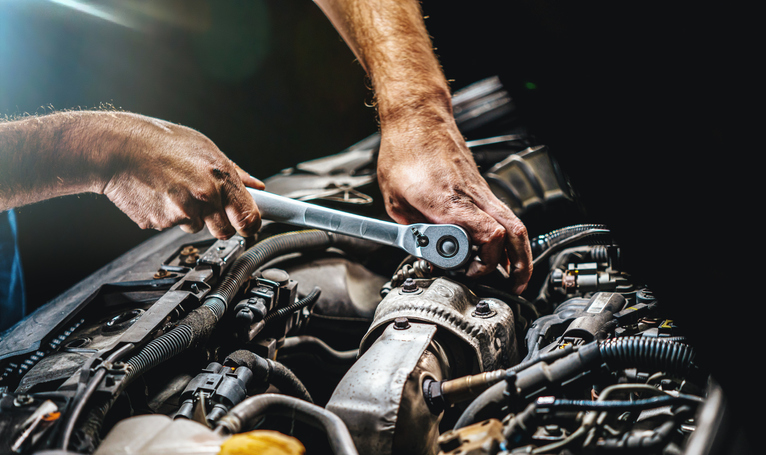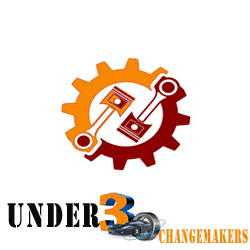
Auto repair is an essential part of vehicle ownership. Whether it’s a minor issue like changing the oil or a significant problem like engine failure, understanding auto repair helps car owners maintain their vehicles and avoid costly repairs. In this guide, we will cover various aspects of auto repair, including the most common problems, how to identify them, and what actions to take.
Common Auto Repair Problems
Every vehicle is prone to wear and tear, and over time, some issues are more likely to occur than others. Understanding these problems can help you catch them early and avoid more extensive damage.
Engine Issues
The engine is the heart of the vehicle, and engine issues can arise due to poor maintenance or regular wear over time.
Common Engine Problems
- Overheating: This occurs when the cooling system fails. If not addressed, it can lead to engine failure.
- Oil Leaks: Leaking oil reduces lubrication, increasing friction within engine parts and causing damage.
- Ignition Problems: This can stem from faulty spark plugs, leading to difficulty starting the car.
How to Diagnose Engine Issues
- Check Engine Light: One of the first signs of an engine issue is the check engine light on your dashboard.
- Unusual Noises: Pinging or knocking sounds could indicate a serious engine problem.
- Decreased Power: If your car struggles to accelerate or loses power, there might be an issue with the engine or fuel system.
Brake System Failures
Brakes are one of the most critical safety components of any vehicle. Brake problems can manifest in various ways, but should never be ignored.
Common Brake Problems
- Squeaky Brakes: This is usually a sign of worn brake pads.
- Brake Fluid Leaks: Low fluid levels can reduce braking efficiency, potentially leading to brake failure.
- Warped Rotors: Warped rotors cause vibrations when braking, leading to uneven wear and decreased stopping power.
How to Diagnose Brake Problems
- Vibrations or Pulsing: When pressing the brake pedal, pulsing sensations can indicate rotor problems.
- Soft Brake Pedal: If the brake pedal feels spongy or sinks to the floor, this could mean air in the brake lines or a fluid leak.
Transmission Troubles
The transmission is responsible for transferring power from the engine to the wheels, and issues here can lead to major problems.
Common Transmission Issues
- Slipping Gears: This happens when the transmission slips out of gear or doesn’t engage smoothly.
- Delayed Shifting: If your vehicle hesitates when shifting, there may be a transmission fluid issue or a mechanical problem.
- Leaking Fluid: Transmission fluid is vital for smooth operation, and leaks can lead to overheating and failure.
Diagnosing Transmission Problems
- Burning Smell: Overheating transmissions often emit a burning smell.
- Grinding or Shaking: If the vehicle grinds or shakes while changing gears, this could indicate a transmission problem.
Tools Every Car Owner Should Have
Having the right tools can make basic auto repairs easier, allowing you to handle minor issues without a trip to the shop.
Essential Tools for Auto Repair
- Socket Set: A quality socket set is versatile and can be used for a wide range of repairs, from changing tires to engine work.
- Jack and Jack Stands: A hydraulic jack and stands are necessary for safely lifting the vehicle off the ground during repairs.
- Wrench Set: Open-ended and adjustable wrenches are needed to tighten and loosen bolts.
- Screwdrivers: A set of Phillips and flathead screwdrivers is useful for various tasks, such as removing screws from panels.
- Pliers: Needle-nose pliers, locking pliers, and adjustable pliers are helpful for gripping and pulling items, such as hoses and wires.
Specialty Tools for Advanced Repairs
- OBD-II Scanner: An Onboard Diagnostics II scanner helps identify engine error codes, allowing you to pinpoint issues without guesswork.
- Torque Wrench: Ensures bolts and nuts are tightened to the manufacturer’s specifications, preventing overtightening.
- Brake Bleeder Kit: If you’re working on your brakes, a bleeder kit is necessary for removing air from the brake lines.
Preventative Maintenance Tips
Preventative maintenance is key to extending the life of your vehicle and avoiding major repairs down the line.
Regular Oil Changes
Changing your car’s oil regularly ensures the engine is properly lubricated, reducing wear on its components.
How Often Should You Change Oil?
The standard recommendation is to change oil every 3,000 to 5,000 miles, but this can vary based on your vehicle’s make and model. Newer vehicles and synthetic oils can often go longer between changes.
Tire Maintenance
Tires are your vehicle’s only contact with the road, so keeping them in good condition is critical.
Tire Maintenance Tips
- Regularly Check Tire Pressure: Under-inflated tires wear out faster and reduce fuel efficiency.
- Rotate Tires: To ensure even wear, rotate tires every 6,000 to 8,000 miles.
- Check for Tread Wear: Bald tires reduce traction, increasing the risk of accidents, especially in wet conditions.
Brake Inspections
Regular brake inspections are necessary to ensure your safety on the road.
How to Inspect Brakes
- Visual Inspection: Look for wear on brake pads and rotors.
- Listen for Noises: Squealing or grinding sounds when braking indicate a need for maintenance.
- Feel the Brake Pedal: If the brake pedal feels soft or unresponsive, it’s time for a professional inspection.
Choosing a Reliable Auto Repair Shop
Finding a trustworthy auto repair shop is critical for ensuring that your vehicle is well-maintained and safe to drive.
What to Look for in an Auto Repair Shop
- Certifications: Look for mechanics who are ASE (Automotive Service Excellence) certified, as this indicates they have undergone extensive training.
- Reputation: Ask for recommendations from friends and family, and check online reviews.
- Experience: Choose a shop that has experience with your vehicle’s make and model.
Questions to Ask a Mechanic
- Do You Offer Warranties?: Ensure that the shop offers warranties on parts and labor.
- Can I Get an Estimate?: Always ask for a written estimate before agreeing to repairs.
- What Is Your Specialty?: Some shops specialize in particular areas, such as transmissions or brakes, so choose accordingly based on your car’s needs.
DIY Auto Repair: What You Can Do at Home
For car owners who like to get their hands dirty, many repairs can be done at home with the right tools and knowledge.
Easy DIY Auto Repairs
- Changing Oil: With basic tools and an oil filter wrench, you can change your car’s oil in less than an hour.
- Replacing Air Filters: Air filters are easy to access under the hood, and replacing them can improve your engine’s efficiency.
- Swapping Brake Pads: While more advanced, replacing brake pads is a task that can be done at home with the right tools.
When to Seek Professional Help
While DIY auto repair is possible for many tasks, some jobs should be left to professionals. These include:
- Transmission Work: Transmissions are complex and require specialized tools.
- Electrical System Issues: Problems with wiring or computer systems often require diagnostic equipment.
- Engine Rebuilds: Major engine repairs require precision and should be handled by experienced mechanics.
Understanding Car Warranties
Warranties offer peace of mind for car owners, covering the cost of repairs for a specified period.
Types of Car Warranties
- Manufacturer’s Warranty: This is included with the purchase of a new vehicle and covers defects for a set period, usually 3 to 5 years or 36,000 to 60,000 miles.
- Extended Warranty: An extended warranty can be purchased to cover repairs after the manufacturer’s warranty expires.
- Powertrain Warranty: Covers only the engine, transmission, and other parts related to the vehicle’s power system.
What Warranties Typically Cover
Warranties cover parts and labor for repairs caused by manufacturing defects or failures within the covered components. However, they generally do not cover wear-and-tear items like brake pads, tires, or wiper blades.
Specialized Auto Repairs: What to Know
Some repairs require specialized knowledge and tools that go beyond general mechanics.
Transmission Repair
Transmission issues are one of the most complex problems a car can face.
Types of Transmission Repair
- Fluid Changes: Like oil, transmission fluid needs to be changed regularly to prevent overheating and gear slippage.
- Rebuilding the Transmission: In severe cases, the transmission may need to be rebuilt or replaced entirely.
Suspension Repair
The suspension system is critical for a smooth and safe ride.
Common Suspension Issues
- Worn Shock Absorbers: Worn shocks result in a bumpy ride and reduced handling.
- Alignment Issues: Misalignment can cause uneven tire wear and poor steering response.
- Broken Springs: A broken coil spring can cause the vehicle to sag or make clunking sounds when driving over bumps.
Electrical System Repair
Modern vehicles have sophisticated electrical systems, and when something goes wrong, specialized knowledge is often required.
Common Electrical Issues
- Dead Battery: A dead battery is the most common electrical issue, but repeated occurrences could indicate alternator problems.
- Blown Fuses: Fuses protect your vehicle’s electrical components, and a blown fuse can cause lights, radios, and other electronics to stop working.
- Faulty Wiring: Damaged wiring can cause intermittent issues, from non-functioning lights to complete electrical failure.
Modern Technology in Auto Repair
As vehicles become more technologically advanced, auto repair shops are integrating new technologies to improve diagnostics and repair accuracy.
OBD-II Diagnostics
Most modern vehicles are equipped with an Onboard Diagnostics II (OBD-II) system that monitors the vehicle’s performance and triggers warning lights when something goes wrong.
How OBD-II Works
- Diagnostic Trouble Codes (DTCs): The OBD-II system generates codes that correspond to specific problems, such as engine misfires or oxygen sensor failures.
- Scanning Tools: Mechanics use OBD-II scanners to read these codes and pinpoint the issue, saving time on diagnostics.
Advanced Driver Assistance Systems (ADAS)
Many modern vehicles feature Advanced Driver Assistance Systems (ADAS) such as lane-keeping assist, adaptive cruise control, and automatic braking.
Impact on Repairs
- Calibration: After certain repairs, such as windshield replacement or suspension work, ADAS systems must be recalibrated to ensure they function correctly.
- Specialized Equipment: Recalibrating ADAS often requires specialized tools and knowledge, meaning many shops need to upgrade their equipment to handle these systems.
The Future of Auto Repair
As technology evolves, so too will auto repair. Electric vehicles (EVs) and self-driving cars are already changing the landscape, and the future promises even more innovations.
Electric Vehicle (EV) Repair
EVs have fewer moving parts than traditional combustion engines, but they come with their own unique challenges.
Common EV Repairs
- Battery Replacement: EV batteries degrade over time, and replacement is a costly repair.
- Electrical System Issues: With more complex electrical systems, diagnosing and repairing EVs often requires specialized training and equipment.
Autonomous Vehicles
Self-driving cars are not yet widespread, but they are likely to become more common in the future.
Potential Challenges
- Sensor and Software Repairs: Autonomous vehicles rely on a network of sensors and software to function, meaning that future mechanics may need skills in both hardware and software troubleshooting.
- Liability Concerns: As vehicles become more automated, determining liability in the event of a malfunction or accident may become more complex.
Auto repair is a continually evolving field, and understanding the basics can help car owners make informed decisions, whether they are performing DIY repairs or taking their vehicle to a professional mechanic. Whether dealing with common issues like engine troubles or preparing for the future of electric and autonomous vehicles, staying informed is the key to keeping your car in top condition.
